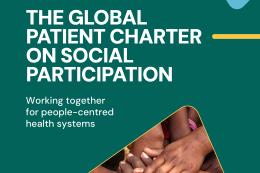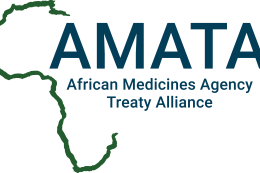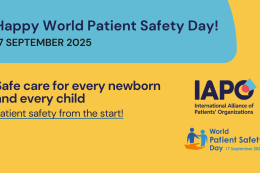Metrodora Awards

The first ever international Metrodora Awards – a celebration of women leaders in science and health improving NCD care and management
Over the past few years, the number of women leaders in science and health has grown significantly. However, while there has been progress towards gender equality, women science and health leaders are still under-represented globally. Women constitute only 30% of the world’s researchers[1] with too few of them occupying decision-making roles in academic and research institutions, which further hinders their ability to shape the research agenda.[2]
In this context, the International Alliance of Patients’ Organizations (IAPO) has partnered with Patient Academy for Innovation and Research (PAIR) and Pfizer Upjohn to launch the first ever international Metrodora Awards, to empower and recognize women leaders who are delivering positive changes in the care and management of non-communicable diseases (NCDs).
In line with the United Nations’ mission to advance gender equality worldwide, as part of the Sustainable Development Goals, the Metrodora Awards is a needed initiative – diversity lies at the heart of a truly patient-centred healthcare. The Awards also go hand-in-hand with IAPO’s mission to help build patient-centred healthcare worldwide, gender equality and patient centricity are inherently linked.
Who was Metrodora? A Greek physician who lived between 200 to 400 CE who wrote the first known medical text to be authored by a woman. By studying and working on all aspects of women’s health, she defied traditional gender roles during a time when women physicians were limited mainly to childbirth and obstetrics. Metrodora was influenced by Hippocrates and the Hippocratic Corpus' work, but she made her own unique contributions. Among many innovations, she pioneered surgical treatments for breast and uterine cancers – a legacy that has influenced throughout history.
Displaying the pioneering characteristics of Metrodora, on October 11, three women science and health leaders were awarded for the inroads they have created into their own professional legacies. Dr Zsuzsa Bagoly, Assistant Professor, Faculty of Medicine, University of Debrecen, Hungary, was recognized as the Developed Nations Leader in Science & Health, for her research in acute stroke therapy, and her role in mentoring other women in health and science. Associate Professor Chau Ngoc Hoa, Director, Center for Health Professional Training University of Medicine and Pharmacy at Ho Chi Minh City, Vietnam, was awarded as the Emerging Nations Leader in Science and Health for her pivotal role in advancing medical education and patient care in cardiology, and in reshaping modern medical practice in Vietnam. Lastly, Professor Lale Tokgozoglu, Professor of Cardiology, Hacettepe University, Turkey, was the winner of the Global Leader in Science and Health Award for her commitment to advancing scientific research in NCDs and her patient advocacy work in Turkey and beyond.
I was incredibly honored to be part of the Metrodora Awards ceremony and deeply inspired by these women of bravery, innovation, vision and achievement. When just last week the first all-woman team received a Nobel science prize, becoming the sixth and seventh women to be honoured for their research in chemistry since the first awards in 1901, it feels an exciting time of change. A time that can inspire a new generation of women in science and health.
While we have significant moments to celebrate, many challenges remain. The need to close the gender gap in science and health is more pressing in the context of the COVID-19 pandemic. Initial data from the United Nations suggests that the effects of COVID-19 could reverse the limited progress that has been made on gender equality in recent years.[3] The pandemic amplifies existing inequalities for women and girls across every sphere, notably health. Women represent 70% of the health and social sector workforce globally[4] and play a disproportionate role in responding to the virus, including as frontline healthcare workers and carers at home. In addition, in difficult times such as pandemics, biased decision-making processes tend to emerge,[5] which could lead to a deprioritisation of equity initiatives.
Urgent action is required at all levels – global, regional, national and local – from all involved stakeholders, notably educational institutions, the private sector and governments, as well as scientific and professional bodies. IAPO and its partners, PAIR and Pfizer Upjohn, stand ready to advance gender equality in science and health. Together, we must ensure that women’s participation, and ultimately leadership, in science and health is not the exception, but the norm.
Looking ahead and reflecting on this year’s Metrodora Awards winners’ leadership and achievements, I am hopeful. I believe the Metrodora Awards can become an important catalyst and vehicle for driving greater change for women leaders in science and health, moving us closer to gender equality one step at a time. Our work is far from finished, but together we can make incremental advance towards a better day for women and girls in science and health.
View the winners
[1] The United Nations Educational, Scientific and Cultural Organization. Women in Science. https://en.unesco.org/news/just-30-world%E2%80%99s-researchers-are-women-whats-situation-your-country. Accessed in October 2020.
[2] World Health Organization. Women in Science. https://www.who.int/tdr/capacity/gender/en/. Accessed in October 2020.
[3] United Nations Sustainable Goals Factsheet. https://www.un.org/sustainabledevelopment/gender-equality/. Accessed in October 2020.
[4] United Nations Population Fund Technical Brief, COVID-19: A Gender Lens, March 2020. https://www.unfpa.org/sites/default/files/resource-pdf/COVID-19_A_Gender_Lens_Guidance_Note.pdf. Accessed in October 2020.
[5] R. Yu, Stress potentiates decision biases: A stress induced deliberation-to-intuition (SIDI) model. Neurobiol. Stress 3, 83–95 (2016).



